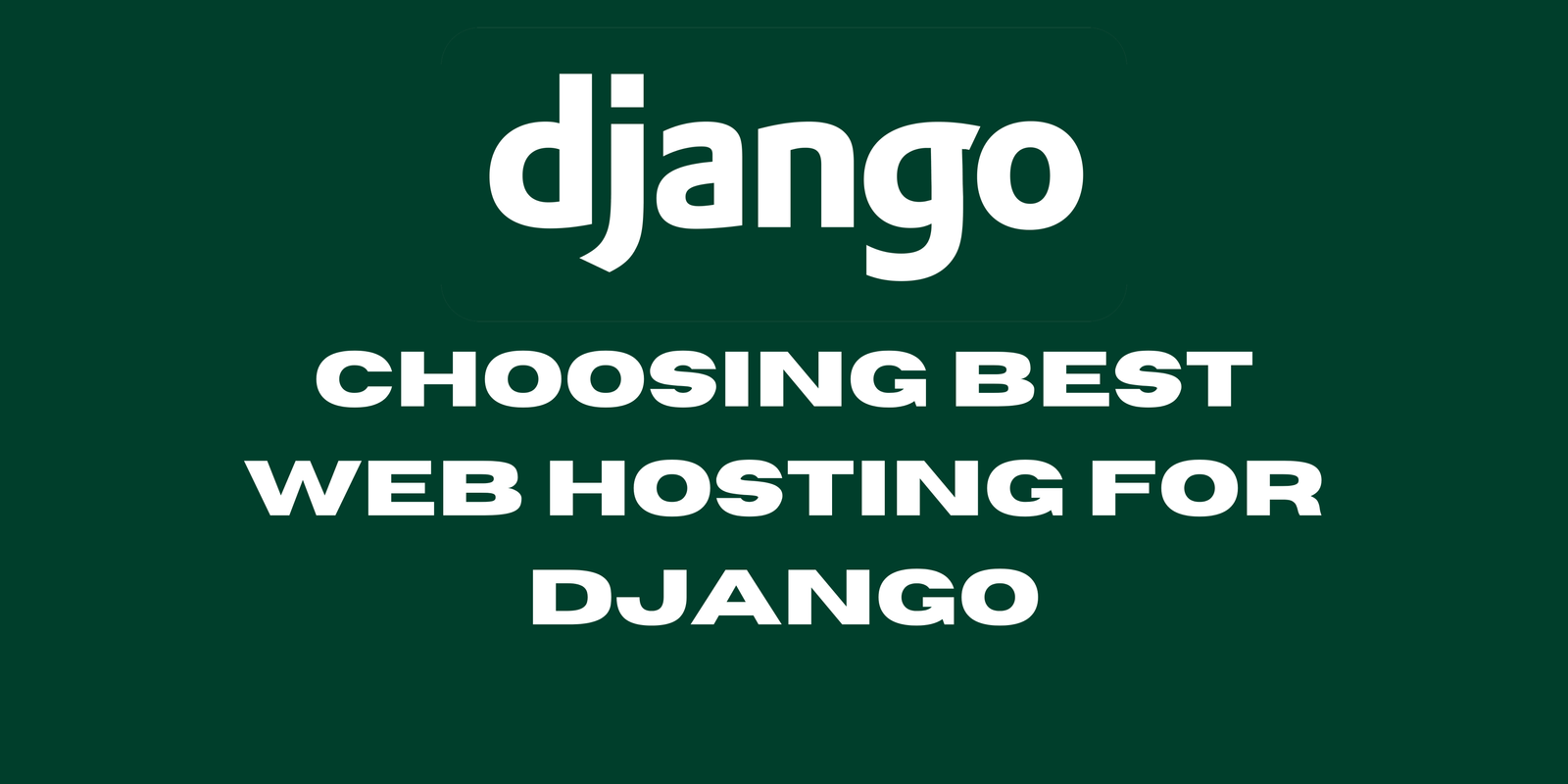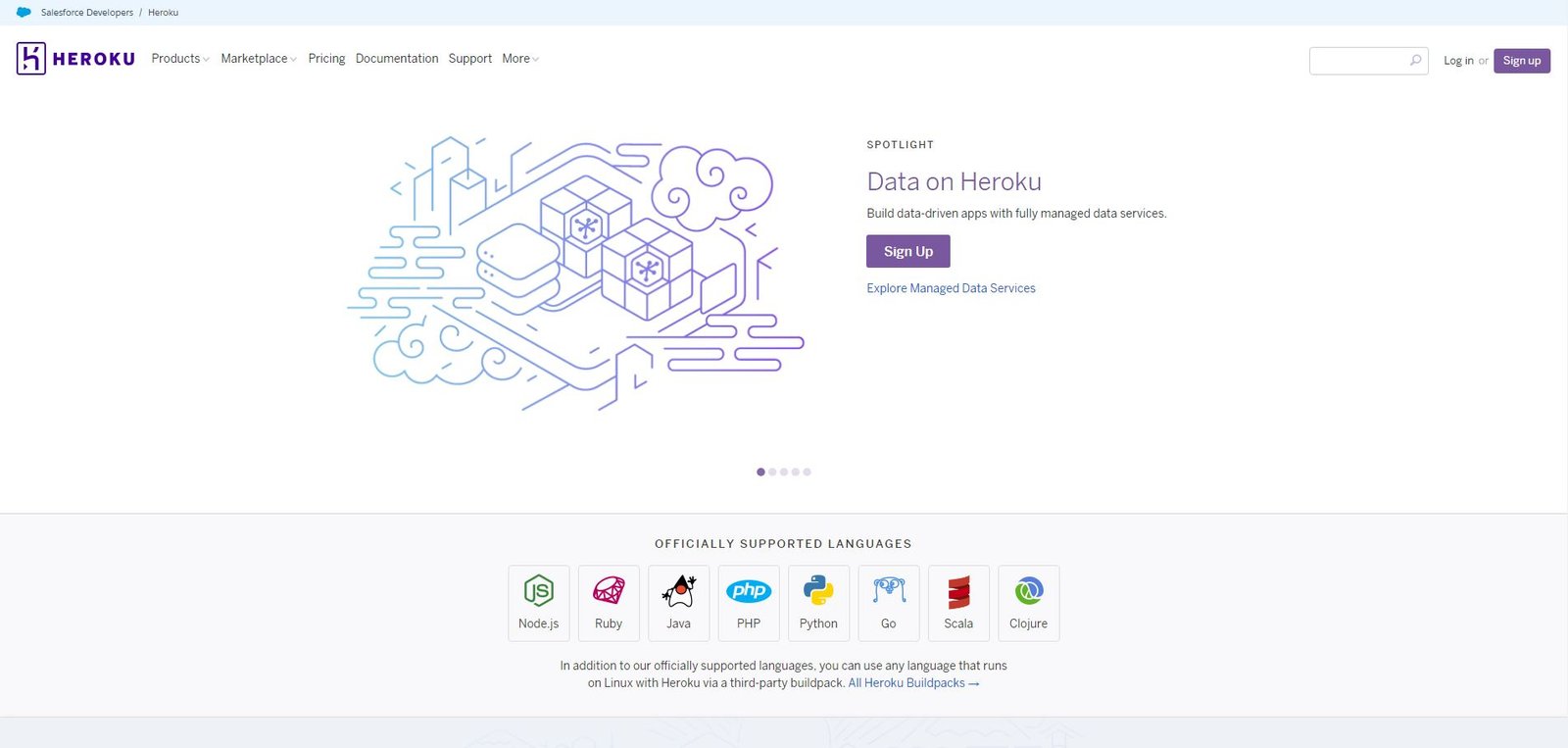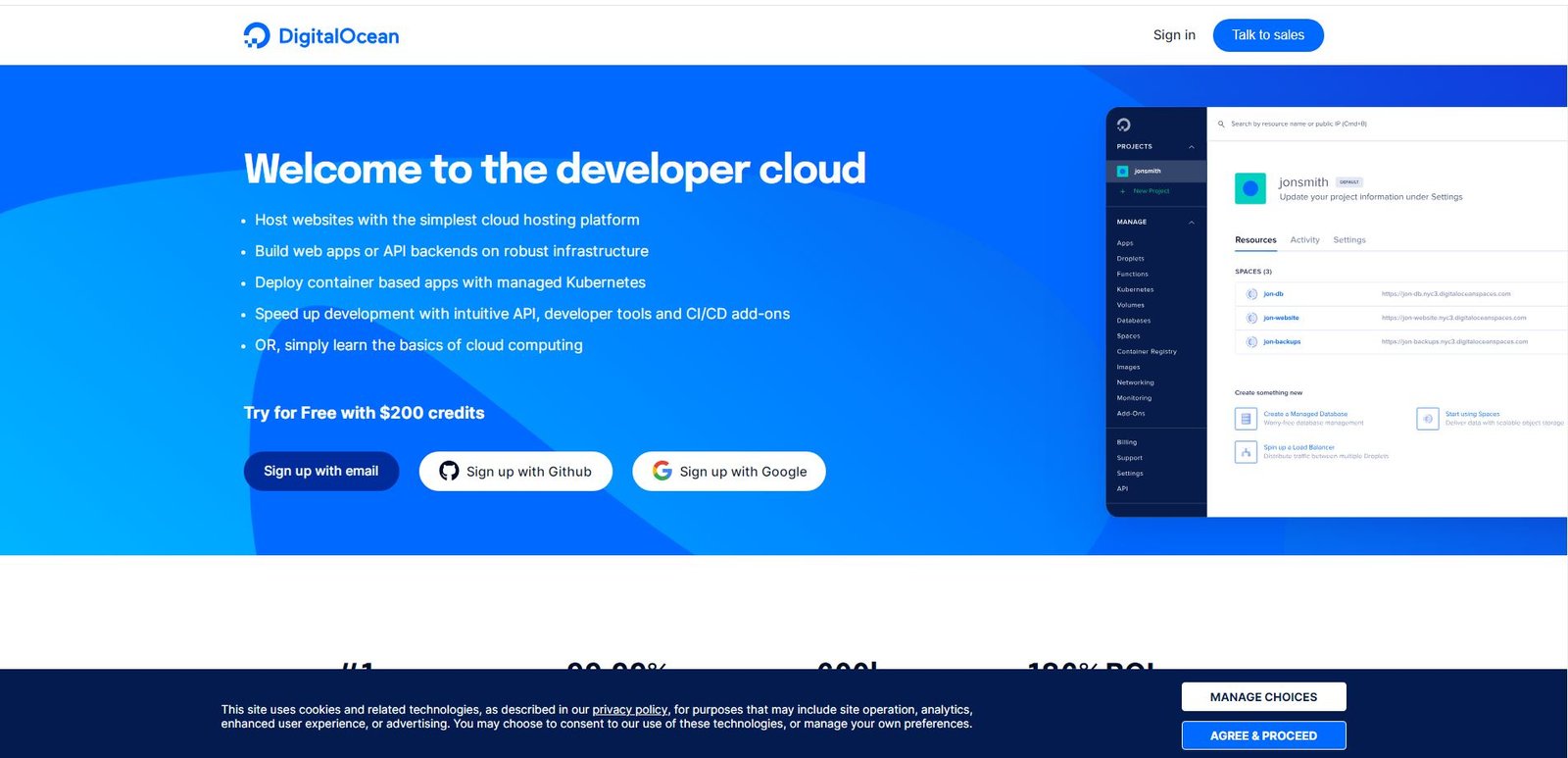Finding The Best Web Hosting For Django
Introduction
Are you ready to take your Django project to the next level? Whether you’re building a simple blog, an e-commerce store, or a complex web application, choosing the right web hosting is crucial. Django, a high-level Python web framework, is favoured by developers for its simplicity, flexibility, and scalability. But to fully harness its power, you need a hosting provider that complements its capabilities.
In this comprehensive guide, we’ll explore the best web hosting options for Django, helping you find the perfect home for your project. We’ll cover everything from shared hosting to cloud solutions, providing insights into the features, benefits, and drawbacks of each option. Also Read CHOOSING THE BEST PYTHON FRAMEWORK FOR WEB DEVELOPMENT
Understanding Django’s Hosting Requirements
High-Level Overview of Django
Django is renowned for its “batteries-included” philosophy, offering a wide array of built-in features for rapid development. It’s used by developers worldwide to create robust, secure, and scalable web applications. From content management systems to social networks, Django’s versatility makes it a top choice for various projects.
Technical Requirements
To run a Django application smoothly, your hosting provider must meet certain technical requirements:
- Python Support: Ensure the hosting service supports Python, as it’s the core language for Django.
- Database Compatibility: Django works well with databases like PostgreSQL, MySQL, and SQLite.
- Security Features: Look for hosting providers that offer SSL certificates, firewall protection, and regular security updates.

Importance of Choosing the Right Hosting
Selecting the right web hosting can significantly impact your Django project’s performance and scalability. The right hosting environment ensures quick loading times, minimal downtime, and a smooth user experience. Let’s explore the different types of hosting options available for Django
.
Types of Web Hosting for Django
Shared Hosting
Shared hosting is an economical choice, ideal for beginners or small projects with low traffic. In a shared hosting environment, multiple websites share the same server resources.
- Pros:
- Cost-effective
- User-friendly control panels
- Suitable for low-traffic sites
- Cons:
- Limited resources
- Potential performance issues due to shared resources
- Less control over server configurations
Virtual Private Server (VPS) Hosting
VPS hosting offers a balance between affordability and control. It provides dedicated resources on a virtual machine, giving you more control than shared hosting.
- Pros:
- Dedicated resources
- Greater control over server settings
- Better performance and security
- Cons:
- It is more expensive than shared hosting.
- Requires some technical expertise
Dedicated Hosting
Dedicated hosting involves renting an entire physical server for your project. It’s suitable for large applications with high traffic and specific security needs.
- Pros:
- Full control over the server
- Optimal performance
- Enhanced security
- Cons:
- High cost
- Requires advanced technical knowledge

Managed Hosting
Managed hosting services handle server management tasks for you, such as maintenance, updates, and security. These services are ideal for developers who want to focus on their projects without worrying about server management.
- Pros:
- Hassle-free server management
- Regular updates and maintenance
- Strong security measures
- Cons:
- Higher cost compared to unmanaged hosting
- Less control over server configurations
Cloud Hosting
Cloud hosting offers scalability and flexibility, making it a popular choice for Django applications. Services like AWS, Google Cloud, and Azure provide a robust infrastructure for hosting your projects.
- Pros:
- High scalability
- Pay-as-you-go pricing
- Global reach and redundancy
- Cons:
- It can be complex for beginners.
- Costs can add up with increased usage.
Top Web Hosting Providers for Django

Heroku
- Features:
- Easy deployment and scalability
- Extensive add-ons for databases, caching, and more
- Free tier for basic projects
- Pros:
- Simple setup
- Seamless scaling
- Great for rapid deployment
- Cons:
- It can become expensive with higher usage.
- Limited control over server settings
- Ideal Use Cases:
- Hobby projects
- Startups and small businesses
- Rapid prototyping

DigitalOcean
- Features:
- Droplets for scalable virtual machines
- Managed databases and Kubernetes
- Simple interface and API
- Pros:
- Affordable pricing
- Developer-friendly tools
- High performance
- Cons:
- Requires some technical knowledge
- Limited customer support options
- Ideal Use Cases:
- Small to medium-sized projects
- Developers looking for flexibility and control
- Cost-conscious startups

PythonAnywhere
- Features:
- Python-centric environment
- Web-based IDE for seamless development
- Simple setup and deployment
- Pros:
- Easy to use
- Focused on Python development
- Affordable pricing
- Cons:
- Limited scalability
- Basic support options
- Ideal Use Cases:
- Educational projects
- Personal websites
- Small-scale applications

Amazon Web Services (AWS)
- Features:
- A comprehensive range of services
- High scalability and global reach
- Advanced security features
- Pros:
- Extensive service offerings
- Ideal for large projects
- Robust infrastructure
- Cons:
- Complex pricing structure
- Steep learning curve
- Ideal Use Cases:
- Enterprise-level applications
- Data-intensive projects
- Businesses needing global reach

Google Cloud Platform (GCP)
- Features:
- Integrated services and tools
- Machine learning capabilities
- Competitive Pricing
- Pros:
- Strong performance
- Wide range of services
- Excellent security
- Cons:
- It can be complex to set up.
- Pricing can vary
- Ideal Use Cases:
- AI and machine learning projects
- Businesses looking for integrated tools
- Scalable web applications

Microsoft Azure
- Features:
- Enterprise-level solutions
- Seamless integration with Microsoft products
- Comprehensive security
- Pros:
- Reliable and robust
- Ideal for enterprise applications
- Wide range of services
- Cons:
- Higher cost
- It can be complex for small projects
- Ideal Use Cases:
- Large enterprises
- Businesses using Microsoft products
- High-security applications
Factors to Consider When Choosing a Hosting Provider
Performance
Performance is crucial for user satisfaction and SEO rankings. Ensure your hosting provider offers fast loading times and minimal downtime.
Scalability
Choose a hosting provider that allows easy scaling of your resources as your project grows. This ensures you can handle increased traffic without compromising performance.
Support
Responsive customer support can save you time and frustration. Look for providers that offer 24/7 support through multiple channels.
Security
Security features like SSL certificates, firewalls, and regular backups are essential for protecting your data and maintaining user trust.
Cost
Compare the pricing structures of different providers to find one that fits your budget. Consider long-term costs, including any hidden fees for scaling or additional services.
Conclusion
The choice of web hosting for your Django project will determine the scalability, security, and speed of your application. There is a hosting solution for you whether your business needs strong infrastructure or a novice searching for a simple setup.
Review your particular requirements, weigh the elements covered, and investigate the top hosting companies we have recommended. With the appropriate hosting partner, you will be in good shape to create and grow a successful Django application.
All set to start? Investigate these hosting choices and discover now the ideal fit for your Django project. See the official documentation and guides of every hosting provider for further information.
Happy coding!
Frequently Asked Questions (FAQ)
What is Django, and why use it?
The high-level Python web framework Django promotes speedy development and clean, pragmatic design. Known for its “batteries-included” attitude, it includes an admin panel, authentication systems, and ORM. This makes it ideal for developers to build powerful and scalable web apps rapidly.
How do I find the best Django hosting provider?
The ideal hosting service relies on your budget, technical expertise, scalability goals, and support needs. This guide recommends evaluating hosting providers based on performance, scalability, support, security, and cost. Trial periods and customer reviews might also reveal insights.
Will shared hosting work for my Django app?
Due to performance, scalability, and security issues, shared hosting is not recommended for Django applications. Django projects benefit from cloud or managed hosting.
What are the key distinctions between managed and unmanaged hosting?
Managed hosting handles server maintenance, upgrades, and security, letting you focus on project creation. Unmanaged hosting gives you more control but demands significant technical knowledge.
Scaling my Django app as it grows?
Scalability is essential for traffic growth and performance. AWS, Google Cloud, and Azure offer scalable cloud hosting for your project. Find hosting providers with easy resource scaling without large application changes.
Hosting provider customer support: what should I look for?
Troubleshooting and fixing issues fast requires responsive customer service. Look for hosting providers with 24/7 live chat, email, and phone support. Customer ratings can indicate the provider’s support quality.
What security measures should I look for in a host?
Security is essential for data protection and user trust. Choose hosting companies with SSL certificates, firewalls, backups, and monitoring. DDoS protection and virus screening are also available.
Are there any hidden charges when picking a hosting provider?
Consider long-term hosting costs, including scaling, storage, and premium support fees. Reading the fine print and customer evaluations can reveal hidden fees hidden by hosting providers.
How does cloud hosting vary from traditional?
Cloud hosting offers on-demand resources, scalable infrastructure, and pay-as-you-go pricing, making it cheaper for growing applications. Traditional shared or dedicated hosting has predetermined resources and pricing, making it less flexible but easier to administer for smaller projects.
Can I swap hosting providers after Django launches?
Switching hosting providers may involve some work to move your application and databases. Make backups and learn the new hosting environment. Migration services from several hosting providers help with the process.
